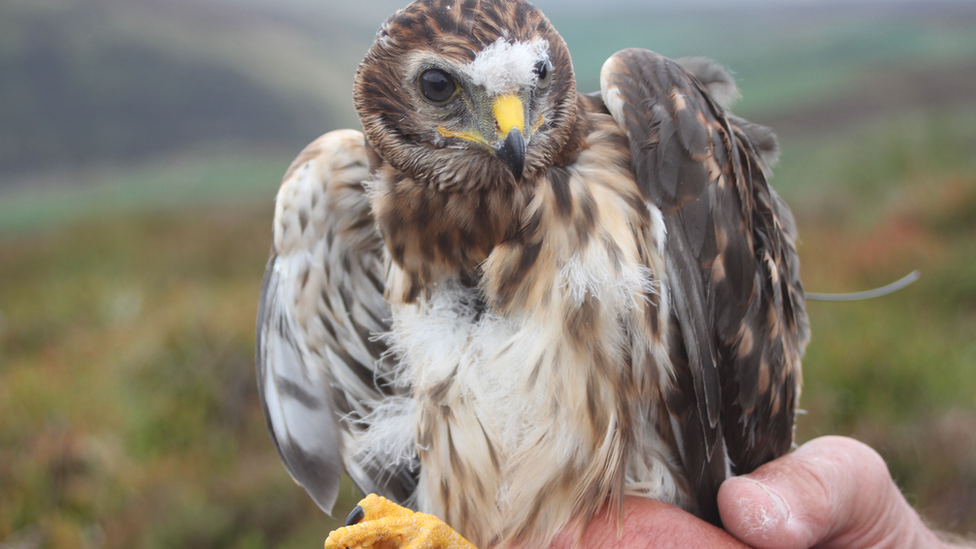Rare bone-eating 'bearded vulture' spotted in Norfolk
- Published
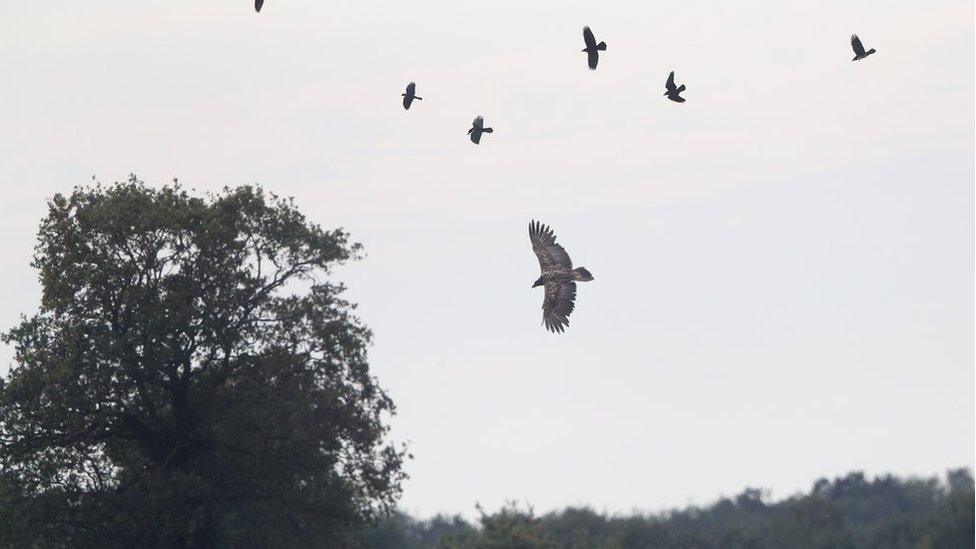
The rare bearded vulture is a year-old female on her way home to the Alps from the Peak District
A rare bone-crunching vulture has been spotted for the first time in the skies over the East of England.
The "bearded vulture" - dubbed "Vigo" - was snapped by photographer James Lowen near Dereham, Norfolk, on Monday.
Mr Lowen said he "screeched to a halt" on the A1067 at Foxley when he caught sight of the bird, as first reported in the Eastern Daily Press, external.
He said it was "tremendously exciting seeing an internationally renowned bird within a few miles of your home town".
The bearded vulture, or lammergeier, is normally found in Alpine regions, has a wing span of 2.5m (8.2ft) and gets its name from a distinctive tuft of feathers under its lower beak.
The RSPB said the bird hatched and fledged in southern Europe last year, but had "wandered up" to the Peak District for the summer.
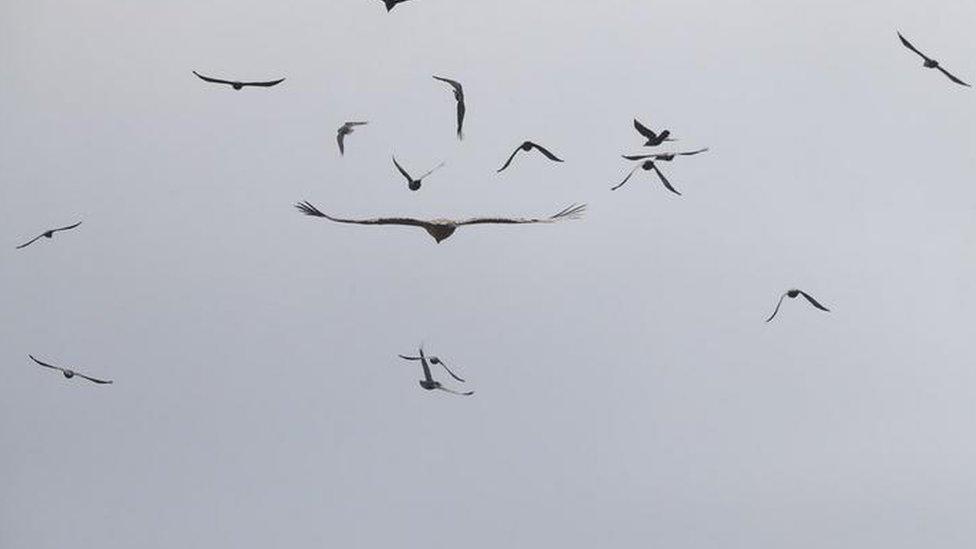
The bearded vulture eats only bones, which it is known to drop from high points onto rocks to break up
Mr Lowen said he saw "a huge bird surrounded by crows", and "pulled over and took a photo".
He said he first believed it to be a white-tailed eagle, before a friend pointed out his mistake when he sent him the photo.
Mr Lowen, a nature writer and photographer, said he "wasn't expecting to see a bearded vulture in Norfolk".
He said: "It's amusing a bird associated with mountains has gone to the flattest county in Britain."
Rupert Masefield, of the RSPB, said Vigo is only the second bearded vulture to be seen in the UK.
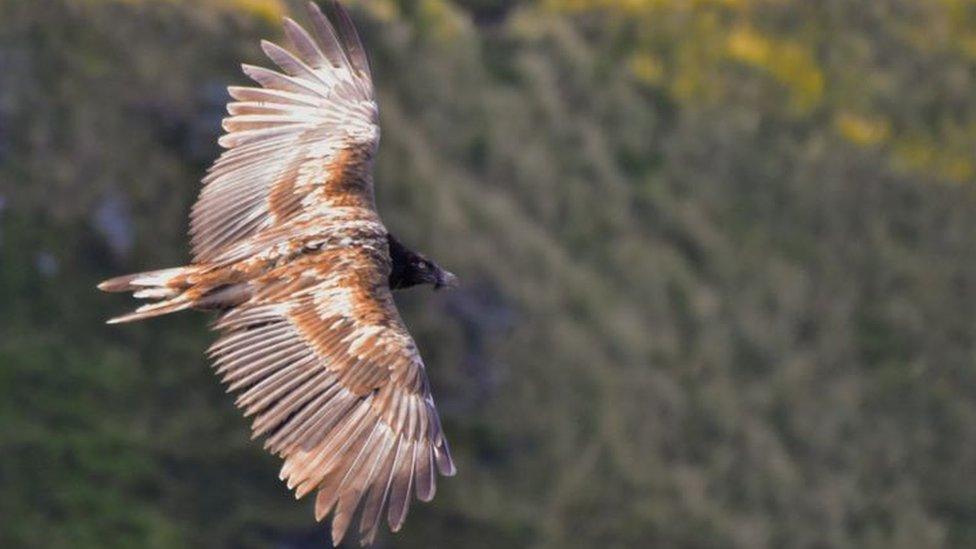
Indy Kiemel Greene, 15, photographed the bird in Derbyshire in July
Bearded vultures are on the International Union for Conservation of Nature (IUCN) Red List, external - meaning they are a "near threatened" species.
Mr Masefield said it has "that iconic vulture look and shape, but it's not like a red kite or a kestrel, it's in a different league."

Find BBC News: East of England on Facebook, external, Instagram, external and Twitter, external. If you have a story suggestion email eastofenglandnews@bbc.co.uk, external
- Published15 July 2020
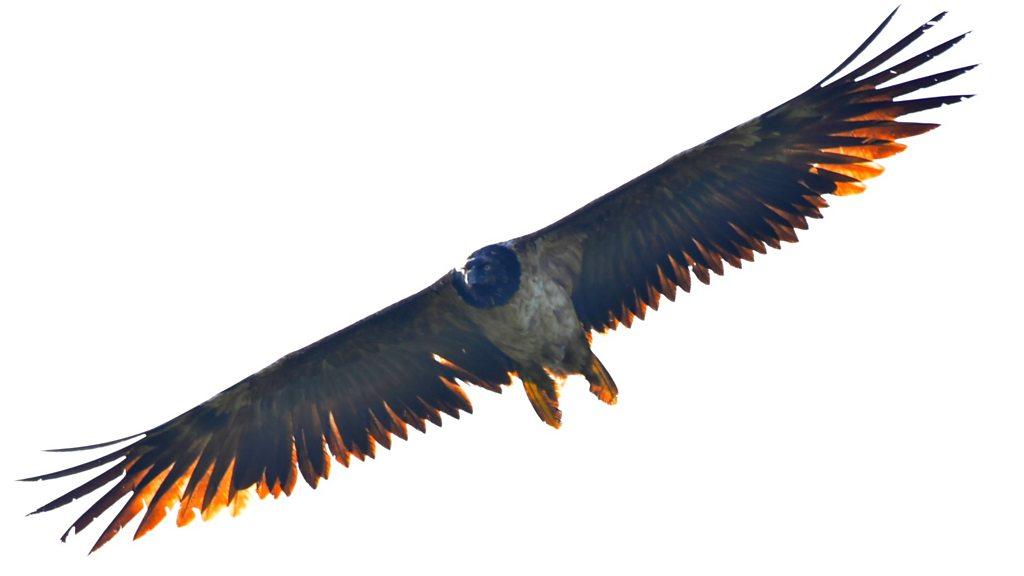
- Published13 July 2020
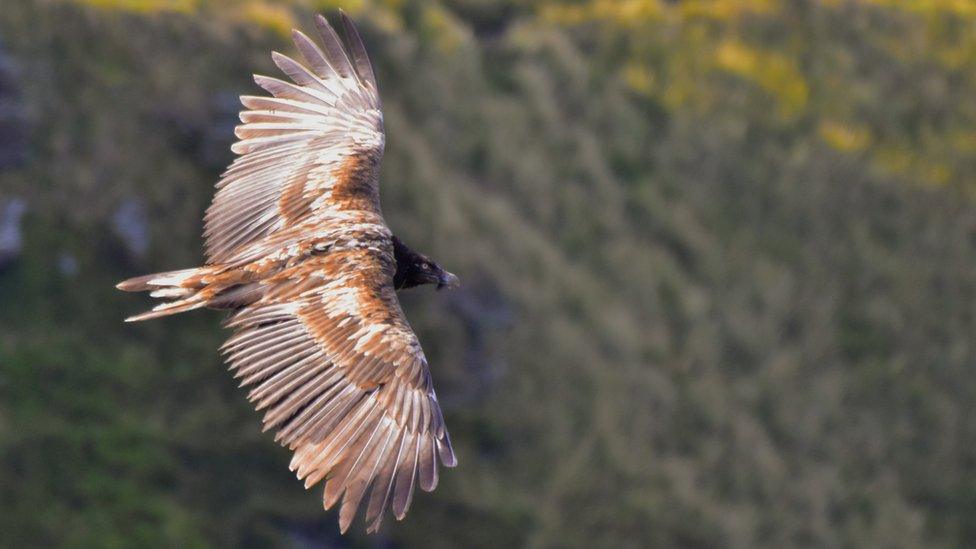
- Published29 August 2019
